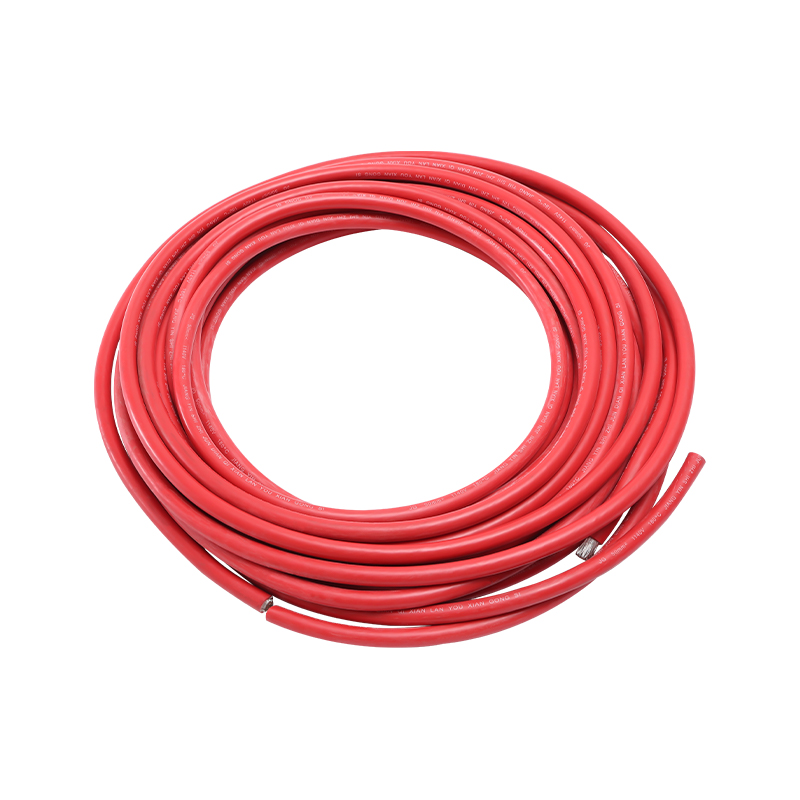In the demanding world of electrical and motor applications, selecting the right wiring material is not just a matter of efficiency—it’s a matter of safety, durability, and long-term reliability. Among the many options available today, Silicone Rubber Motor Lead Wire has emerged as one of the most dependable solutions for industries that require both flexibility and resilience in extreme environments.
This article explores the key features, applications, and advantages of silicone rubber motor lead wires, and why they have become a preferred choice for engineers and manufacturers worldwide.
What Is Silicone Rubber Motor Lead Wire?
Silicone rubber motor lead wire is a specialized electrical cable designed to carry power or signals to electric motors and other equipment, particularly in environments where high temperatures, mechanical stress, and chemical exposure are common. The insulation of these wires is made from silicone rubber, a synthetic elastomer known for its exceptional flexibility, thermal stability, and electrical insulation properties.

Unlike PVC or polyethylene, silicone rubber maintains its flexibility across a wide range of temperatures, typically from -60°C to +200°C or higher, depending on the specific formulation. This makes it ideal for applications such as industrial motors, automotive systems, and aerospace equipment, where conventional insulation materials would fail.
Key Features of Silicone Rubber Motor Lead Wire
-
High-Temperature Resistance
Silicone insulation can withstand continuous high temperatures, making it perfect for environments where heat is generated, such as in motors, ovens, and heating equipment. -
Excellent Flexibility
Even in low temperatures, silicone rubber remains supple and easy to handle. This is particularly useful for wiring in tight spaces or moving parts. -
Outstanding Electrical Insulation
Silicone rubber provides excellent dielectric strength, ensuring safety and preventing electrical leakage. -
Resistance to Chemicals and Moisture
It performs well against oils, solvents, and moisture, reducing the risk of degradation. -
Weather and UV Resistance
Silicone rubber does not crack or harden under prolonged UV or outdoor exposure, making it suitable for harsh environments.
Applications of Silicone Rubber Motor Lead Wire
Silicone rubber motor lead wires are used across multiple industries due to their durability and adaptability. Common applications include:
- Industrial Motors – For continuous operation in hot, dusty, or damp environments.
- Electric Vehicles (EVs) – Ensuring safe current delivery in high-performance electric drivetrains.
- Aerospace Equipment – Withstanding extreme temperatures and vibrations.
- Household Appliances – Especially in heating devices such as ovens, dryers, and coffee machines.
- Medical Equipment – Where flexibility, sterilization resistance, and safety are essential.
- Renewable Energy Systems – For solar panels, wind turbines, and battery storage units.
Comparison Table: Silicone Rubber Motor Lead Wire vs. Other Wire Insulations
| Feature / Property | Silicone Rubber Lead Wire | PVC Insulated Wire | Teflon (PTFE) Wire |
|---|---|---|---|
| Temperature Range | -60°C to +200°C | -20°C to +80°C | -70°C to +260°C |
| Flexibility (Low Temp) | Excellent | Poor | Good |
| Electrical Insulation | High | Medium | Very High |
| Chemical Resistance | High | Low | Very High |
| UV & Weather Resistance | Excellent | Poor | Excellent |
| Cost | Medium | Low | High |
| Typical Applications | Motors, EVs, Aerospace | Household Wiring | Aerospace, Lab Use |
Why Choose Silicone Rubber for Motor Lead Wires?
-
Durability in Extreme Environments
Silicone rubber wiring can operate in conditions that would damage or destroy other insulation materials, offering peace of mind and reduced maintenance costs. -
Enhanced Safety
Its excellent electrical insulation reduces the risk of short circuits, even in humid or chemically aggressive conditions. -
Flexibility for Design Freedom
Engineers can route silicone rubber wires through complex pathways without worrying about cracking or stiffness over time. -
Longevity
Silicone wires typically outlast conventional PVC or rubber wires, especially in high-heat or outdoor settings.
Installation Tips for Silicone Rubber Motor Lead Wire
- Avoid Over-Bending – While flexible, repeated sharp bends can cause internal conductor fatigue.
- Proper Termination – Use crimp connectors or soldering techniques suited for high-temperature environments.
- Protection in Abrasive Areas – Use additional sleeving if wires are routed through sharp-edged metal parts.
- Check Voltage Ratings – Ensure the chosen wire meets the voltage requirements of your specific motor application.
Conclusion
In the world of motor and electrical wiring, Silicone Rubber Motor Lead Wire stands out as a premium choice for demanding applications. Its exceptional temperature resistance, flexibility, and resilience against environmental factors make it suitable for everything from industrial machinery to electric vehicles and aerospace systems. While it may cost more than standard PVC wires, its durability and performance often translate into long-term savings and improved safety.



 English
English عربى
عربى Español
Español









